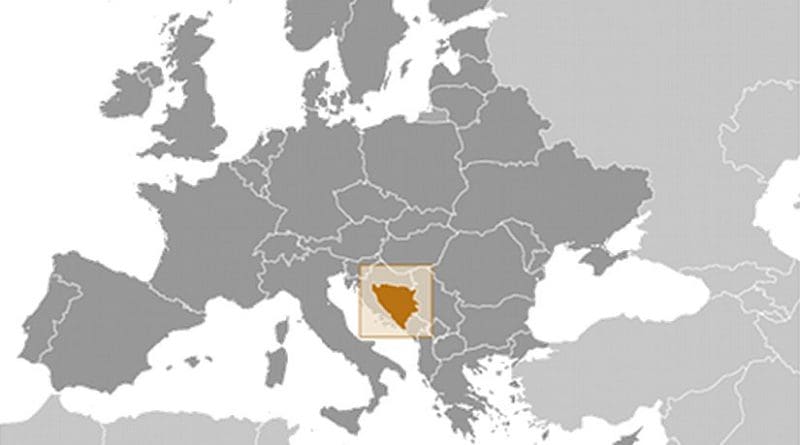EU, US Warned About ‘Deteriorating’ Bosnia
By Rodolfo Toe
A group of academics and political analysts urged the international community to intervene to ensure vital reforms are implemented in Bosnia and Herzegovina and prevent the political situation worsening.
EU foreign policy chief Federica Mogherini, enlargement commissioner Johannes Hahn, the European Union Foreign Affairs Council and US Secretary of State, John Kerry were urged in an open letter signed by the prominent academics and political analysts on Thursday to take action to ensure progress in Bosnia and Herzegovina.
“Twenty years after the signing of the Dayton Peace Agreement [that ended the war in 1995], the political, economic and social situation in Bosnia and Herzegovina has been steadily deteriorating,” the letter said.
It criticized the US and EU’s current role in the country, saying they “have gradually abandoned their legal and moral obligation to uphold the 1995 Dayton Agreement”.
It also claimed that the US and EU have shown “a declining interest” in the role of the High Representative, the senior international official in the country, and in the EU peacekeeping force, which it said are “the key mechanisms for ensuring the agreement’s civilian and military implementation”.
The academics and political analysts said they wanted to “appeal to the EU and the US to strengthen their commitment to the European future of BiH [Bosnia and Herzegovina], to adopt a firm approach toward spoilers of the reform process and to jointly use their leverage potential in a coordinated manner”.
They signalled three key priorities for international engagement.
“Firstly, it must be recognised that the step-by-step approach to reforms is not working and needs to be replaced by a firmer one. Secondly, there needs to be an increased commitment to the implementation of the rule of law”, especially regarding “the corrupt and inefficient justice sector”, they said. “Citizens of BiH must be placed at the centre of all political processes… Negotiations about reforms behind closed doors are not conducive to the creation of a democratic political culture. Public outreach and inclusiveness of citizens must become part of the reform strategy towards BiH,” they added.
They highlighted the proposed referendum in Bosnia’s Serb-dominated entity Republika Srpska, which will challenge the authority of the state-level judiciary and the High Representative, as a threat to the country’s stability, saying that Bosnian Serb leader Milorad Dodik was playing a dangerous political game.
“Mr. Dodik is using the referendum as part of his campaign for the 2016 local elections… There could be a second referendum – on RS [Republika Srpska] independence – which Mr. Dodik has been repeatedly announcing (most recently for 2018),” the letter said.
“The mere organization of a referendum on RS independence would endanger BiH’s territorial integrity and almost certainly lead to new violence,” it warned.
The letter was written by several members of SEESOX (South East European Studies at Oxford) including Jessie Hronesova, Dr Adis Merdzanovic and Sir David Madden. Those signing the letter included Professor Florian Bieber of the University of Graz, Professor Richard Caplan of Oxford University, Dr Catherine Baker of the University of Hull, Dr Ioannis Armakolas of the University of Macedonia and the Hellenic Foundation for European and Foreign Policy, and Srecko Latal of BIRN and SOS.


Please it is their Country it is their life let them decide about their fate enforcing or bombing well experienced western democracy is ok but it seems that Bosnia is steel century behind with heavy rivers of blood uncompromising historic antagonistic conflict of interests if we don’t let them find solution once for all for themself this will go for ewer with thousands dead innocent children Please listen to this do not repeat mistake from the past.